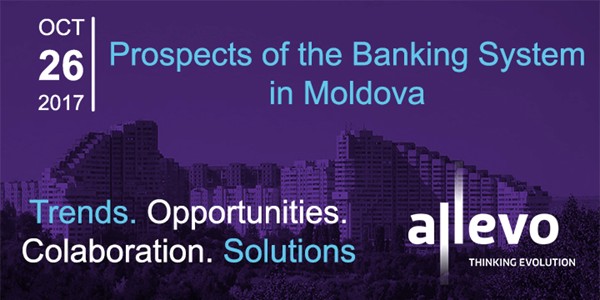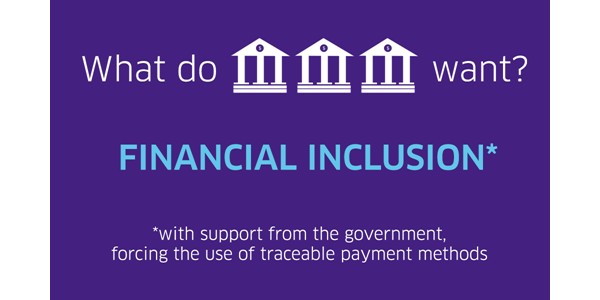Last week, we put together in Chisinau the first international conference linked to our most recent project for SMEs and corporate treasuries: FinOps Suite*. A major focus of this conference was to extend the FINkers United community in Moldova, one of the main goals of our project funded under the Competitiveness Operational Programme 2014-2020.
On October 26th 2017, the event unrolled by bringing on stage representatives of the main pillars of the financial and banking environment in both Romania and the Republic of Moldova. These amazing speakers helped us deliver a successful event for the audience formed by 90 decision makers and operations professionals from the local market.
We take this opportunity to give special thanks to the ones who accepted our invitation to join us on stage to share insights of their experience and a short history about the evolution of their institutions, lessons learned, current and future projects and things to look forward to, namely: the Romanian Banking Association, the National Bank of Romania, TransFonD, Eximbank Romania, the National Bank of Moldova, the Moldovan Banks Association, Victoriabank and Moldova Agroindbank.

Conference Highlights
- With regards to Basel II and III, the National Bank of Moldova is expecting to conduct a phased implementation, first deadline being July 2019.
- The role of the Moldovan Banks Association is to serve the interest of the banks, given the general context of the banking system reform, and Romanian experts have already trained bank employees on several topics, with help from MBA.
- The National Bank of Romania highlighted its 4 main focus areas: PSD2 (obviously), Directive 2014/92/EU on the comparability of fees related to payment accounts, Regulation (EU) 2015/751 on interchange fees for card-based payment transactions, and MiFID II (Markets in Financial Instruments Directive).
- The main projects of the Romanian banking community are centered around increasing the financial intermediation (crediting), the digital agenda and financial education.
- The Romanian Banking Association (ARB) also talked about introducing digital technologies, the role of innovation in the banking services and new technologies (blockchain), as well as instant payments services at the EU and Romanian level (ARB– TransFonD project in progress)
- TransFonD recommends a unitary adoption of standards in order to ensure interoperability and ease of processing.
- The Romanian State Treasury operations account for about 21% of Romania’s payments volume and they are successfully being processed by Allevo’s solution since 2005.
- One of the early FinTP adopters, Eximbank Romania, talked about making smart investments in technology: open source options, such as FinTP, that ensure transparency of code and, thus, enhanced security (the customer is able to audit and scan the code that runs in its back-office). They also presented how they ended up making the choice for FinTP and how their internal architecture is put together. It was a very down to earth and hands-on overview of how a bank operates from behind the scenes and how systems that need to flawlessly function at their best are designed and implemented.

- We announced our first banking customer in Moldova who has already adopted one of Allevo’s solutions, FMA, which helps them streamline operations and ensures a backup of the production environment and of the connection to SWIFT. We have been long present so far on the Moldavian market, delivering IT and consultancy services to local banks, but this is the first Allevo product we sold to one of these banks. We are very proud to add such a reference to our portfolio.
- One of the most prominent issues in Moldova, as well as in Romania, is the lack of workforce, and banks definitely feel it. It is closely followed by lack of technical resources, especially given the constant advance in technology. It’s difficult to keep the pace…
- Both local banks who made the honor of taking the mic, Victoriabank and Moldova Agroindbank, presented a high-level overview of the local market, what they expect from the regulator, projects they have in the pipeline and their strategy of addressing the financial inclusion issue.
- The National Bank of Romania advised Moldavian banks to not only expect regulations from the central bank, as those generally come in response to what is already happening on the market. Instead, it’s really important to approach self-regulation, in order to ensure a constant and early enough evolution.
- Business continuity is essential and major banks should be able to recover instantly! For example, in Romania, 5 banks total 70% of the payments volume. These systemic banks cannot suddenly disappear from the grid.
All in all, the October conference in Chisinau was, beyond doubt, one of the many key steps in promoting our FinOps Suite solution worldwide, as well as expanding the FINkers United community beyond borders, and we would like to thank everyone involved for making this possible. Already looking forward to our next endeavor…
*FinOps Suite is the business name of the software solution being developed within our Treasure Open Source Software (TOSS) project.
In Romanian:
Pentru informatii detaliate despre celelalte programe cofinantate de Uniunea Europeana, va invitam sa vizitati www.fonduri-ue.ro. Continutul acestui material nu reprezinta in mod obligatoriu pozitia oficiala a Uniunii Europene sau a Guvernului Romaniei. Proiect finantat in cadrul POC, Axa prioritara 2, Acțiunea 2.1, Prioritate de investitii 2b. Cod MySMIS: 115724, Nr. Contract Finantare: 101/16.08.2017.










